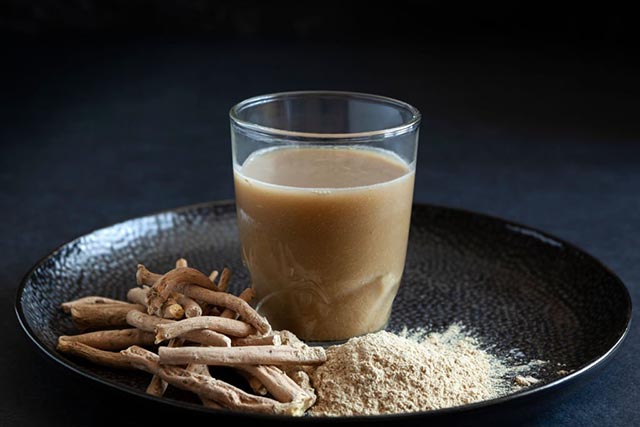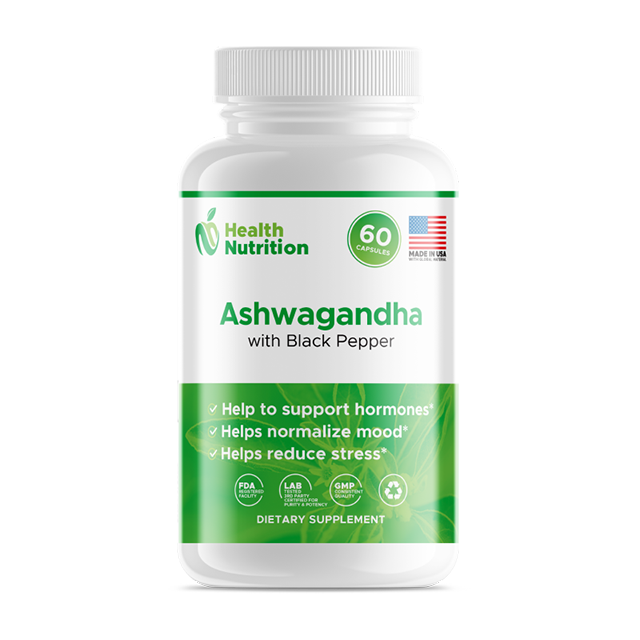With many health ailments and diseases to worry about, individuals are turning to supplements to keep themselves healthy. One of these supplements, ashwagandha, has become quite popular in the past.

Follow along with us as we look at all the amazing benefits this herb has, as well as any potential side effects.
What is Ashwagandha?
Ashwagandha is a shrub with yellow flowers that is grown in India and Southeast Asia. Extracts of this shrub have been used for thousands of years to treat ailments, including fertility troubles and stress.
In Ayurveda, ashwagandha is considered one of the most crucial herbs used to not only relieve stress but improve sleep quality and decrease inflammation. There are many other important benefits of this herb as well.
Ashwagandha is Sanskrit for the “smell of the horse” for not only its scent but also increasing strength. To some, it is referred to as winter cherry while clothes know it as Indian ginseng.
Stress and Anxiety
Ashwagandha is well known for relieving stress and anxiety. As this herb is an adaptogen, it has a substance that will help individuals cope with stress.
Various research has been completed showing that ashwagandha supplements could assist in relieving stress and anxiety.
One study containing 58 participants who were given 250 or 600 mg of ashwagandha extract for 8 weeks had substantially decreased observed stress. The levels of the stress hormone cortisol were also lower than those compared who were given a placebo.
These individuals who took the ashwagandha supplements experienced great improvements in sleep quality compared to those who did not.
Athletic Performance
Ashwagandha may also improve athletic performance, proving it may be worthwhile for athletes to use this as a supplement.
Twelve studies were conducted on men and women who took between 120 mg and 1,250 mg of ashwagandha per day. The results showed this herb could enhance physical performance, as well as energy and oxygen use during exercise.
Research of five studies showed that taking this supplement considerably improved maximum oxygen consumption (VO2 max) in sound adults and athletes. VO2 max is the utmost amount of oxygen an individual can employ during extreme activity. It’s an evaluation of heart and lung health.
Possessing ideal VO2 max is crucial for athletes and non-athletes. Poot VO2 max is related to a greater death risk, while increased VO2 max is connected to a diminished chance of heart disease.
Decrease Inflammation
Ashwagandha includes compounds, including WA, that could assist in diminishing inflammation in our bodies.
Studies have shown that WA targets inflammatory pathways in the body. Signal molecules known as nuclear factor kappa B (NF-κB) and nuclear factor erythroid 2-related factor 2 (Nrf2) are included in this.
Research has found that WA might likewise assist in decreasing amounts of inflammatory proteins such as interleukin-10 in animals.
Evidence has been shown that ashwagandha might decrease inflammatory markers in humans as well. Research from 2008 found adults encountering stress who were supplemented with ashwagandha extract for 60 days showed substantial decreases in the inflammatory marker C-reactive protein when compared to individuals who took a placebo.
Improvement in Sleep
It is common for individuals who take ashwagandha to see improvements in their sleep.
One study of 50 adults ages 65–80 showed consuming 600 mg of ashwagandha root per day for 12 weeks greatly enhanced sleep quality. Upon waking up, mental alertness was also better when compared to those individuals who consumed a placebo.
Side Effects of Ashwagandha
There are very few side effects of ashwagandha. These appear when an individual has taken too high of a dose. These side effects include:
- Upset stomach
- Diarrhea
- Vomiting
- Rapid heartbeat
- Reflex time increased
- fatigue
It is crucial to follow the manufacturer’s directions for dosage as too large of doses may damage the liver and kidneys.
Who Should Not Take Ashwagandha
Even though ashwagandha is considered relatively safe, there are some individuals that should not take this herb, including:
- Individuals who are pregnant or breastfeeding
- Those who have intestinal disorders
- Those with hemochromatosis
- Anyone who suffers from hyperthyroidism
- Anyone taking antidepressants, anxiolytics, immunosuppressants, antidiabetics, cardiotonic, or sedatives
You should also note it is possible to be allergic to ashwagandha. Should you show signs of being allergic, stop taking ashwagandha immediately.
Dosage
It is recommended to take 1 gram of ashwagandha per day when taken in capsule form. For powder form, you should use 10 grams of dried powder to 500 milliliters of water to sip on throughout the day. For powders, mix 4 teaspoons with a beverage such as juice, yogurt, or pudding.
Ashwagandha By Health Nutrition

More info about this product >>
- Supports a healthy hormone balance while combating the effects of stress
- A one-time purchase will run you $40 for 60 capsules. A subscription will save you 36% and cost $32 per month.
- Free shipping and money-back guarantee
- 100% safe and natural ingredients– Ashwagandha and black pepper
- Sold by a trusted company that has been in the business for more than 20 years.
Buy Ashwagandha directly from the official website >>

Hi, I’m Ashley! I help big-hearted spiritual individuals reach new levels of success, self love, and confidence.















